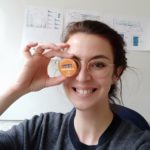Link to Pubmed [PMID] – 30496401
Link to DOI – 10.1093/gbe/evy262
Genome Biol Evol 2019 01; 11(1): 220-231
The evolution of antifreeze glycoproteins has enabled notothenioid fish to flourish in the freezing waters of the Southern Ocean. Whereas successful at the biodiversity level to life in the cold, paradoxically at the cellular level these stenothermal animals have problems producing, folding, and degrading proteins at their ambient temperatures of -1.86 °C. In this first multi-species transcriptome comparison of the amino acid composition of notothenioid proteins with temperate teleost proteins, we show that, unlike psychrophilic bacteria, Antarctic fish provide little evidence for the mass alteration of protein amino acid composition to enhance protein folding and reduce protein denaturation in the cold. The exception was the significant overrepresentation of positions where leucine in temperate fish proteins was replaced by methionine in the notothenioid orthologues. We hypothesize that these extra methionines have been preferentially assimilated into the genome to act as redox sensors in the highly oxygenated waters of the Southern Ocean. This redox hypothesis is supported by analyses of notothenioids showing enrichment of genes associated with responses to environmental stress, particularly reactive oxygen species. So overall, although notothenioid fish show cold-associated problems with protein homeostasis, they may have modified only a selected number of biochemical pathways to work efficiently below 0 °C. Even a slight warming of the Southern Ocean might disrupt the critical functions of this handful of key pathways with considerable impacts for the functioning of this ecosystem in the future.

